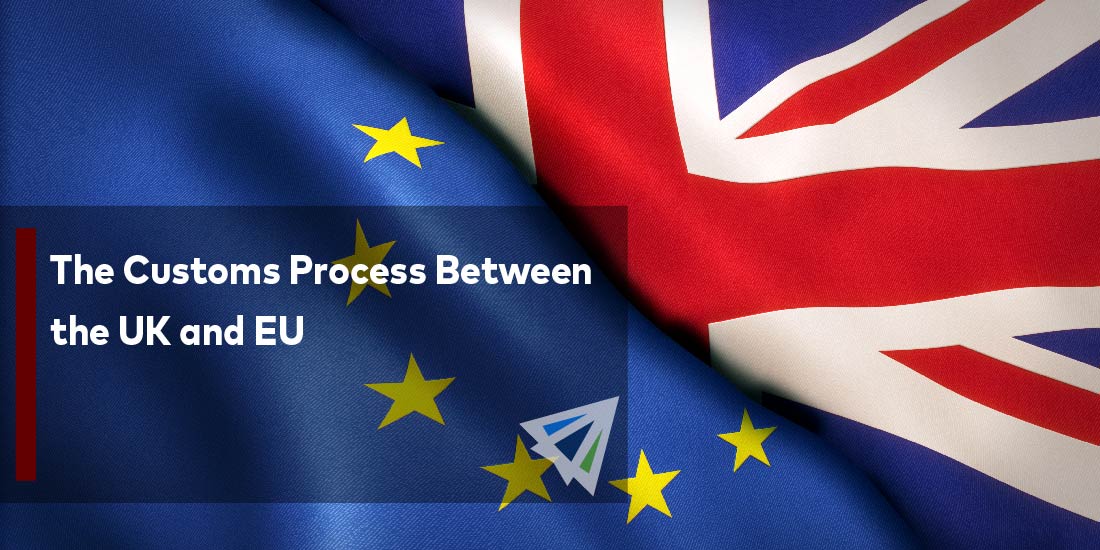The Customs Process Between the UK and EU
Back in 2016, the United Kingdom voted to leave the European Union, to set their own trading rules and control a variety of issues such as the movement of labor, agricultural policy and tariffs. On January 31st, 2020, the UK withdrew from the European Union. The UK completed its separation from the EU, on December 31st, 2020, with the ending of the Brexit transition period.
The Customs Process
An Economic Operators Registration and Identification number, otherwise known as a EORI number, is something you may need, especially if you move goods:
-between Great Britain (England, Scotland and Wales) or the Isle of Man and any other country (including the EU)
-between Great Britain and Northern Ireland
-between Great Britain and the Channel Islands
-between Northern Ireland and countries outside the EU
Furthermore, you must have an EORI number if you’re engaged in customs activities with businesses outside of the UK.
You do not need an EORI number if you’re moving goods for personal use only, the UK Government details.
Additionally, you will need your EORI number if you appoint someone to deal with customs for you and are ‘established’ in the country you’re importing to or exporting from, make customs declarations, use customs systems – such as the CHIEF system and the Import Control System Northern Ireland (ICS NI), or applying for a customs decision.
Getting your goods through customs can be a daunting task, which is why hiring a customs agent to make the customs declaration for you is a good idea.
If you’ve appointed someone to deal with UK customs for you, they’ll make the declaration and get your goods through the UK border. You may need other documentation to get your goods into the destination country, so ask the person/business you’re buying goods what information you need to provide.
Getting UK customs clearance when exporting goods:
Your goods must be ready to export before you can get customs clearance. You will need an EORI number that starts with GB to export goods from England, Wales or Scotland. If the goods you’re moving are to or from Northern Ireland, you may need one that starts with XI, the UK government details. If you are exporting plant products or controlled goods, you will also need to make sure those are registered.
Sometimes there are processes in which make the customs process quicker, you can check those out here.
Then, you must declare your goods for export. Here is a good resource to find out when and how to make an export declaration.
Additionally, to get the goods across the UK border, the goods must be brought to the port, or a UK border location named in the export declaration. You will need the ‘master reference number’ from the export declaration, the invoice, and any export licenses or certificates needed.
Your goods may be checked by customs staff before they allow them to cross the UK border. If your goods do get held up at customs, you will be told why and you will want to make sure you do what you need to do, to get the goods released.
UK’s Post-Brexit IT System Error Causes Disruption for UK Importers
Recently, an error in the UK’s post-Brexit IT border system has caused some disruption for companies bringing goods in from the European Union – creating additional costs, more bureaucracy and snarling deliveries, the American Journal of Transportation (AJOT) says.
Specifically, there was a change to the government’s Custom Declaration Service, which prevented some traders to acquire the necessary paperwork last Tuesday. As AJOT reports, His Majesty’s Revenue and Customs (HMRC) – the UK’s tax authority – introduced an overnight change to the tariff code that’s required to qualify for duty-fee imports from the EU. Frustration ensued as many traders were unaware of the change and when the new tariff code was used, it led to customs forms being rejected.
This caused some trucks to be held up at customs deports because of the incorrect documentation – and caused some additional expenses to occur in order for the issues to be fixed.
HMRC acknowledged the situation and apologized about “some of the disruption” that occurred in the CDS system.
Looking Ahead
We will be discussing this topic as well as many other topics surrounding the UK in our upcoming Coffee & Cargo webinar. There is still time to sign up, you can click here to do so.
Should you have any questions regarding this and how it could impact your shipments, please reach out to our team today. Additionally, we have our weekly market updates that can provide you with relevant freight news, updates, developments across the industry, and more.
